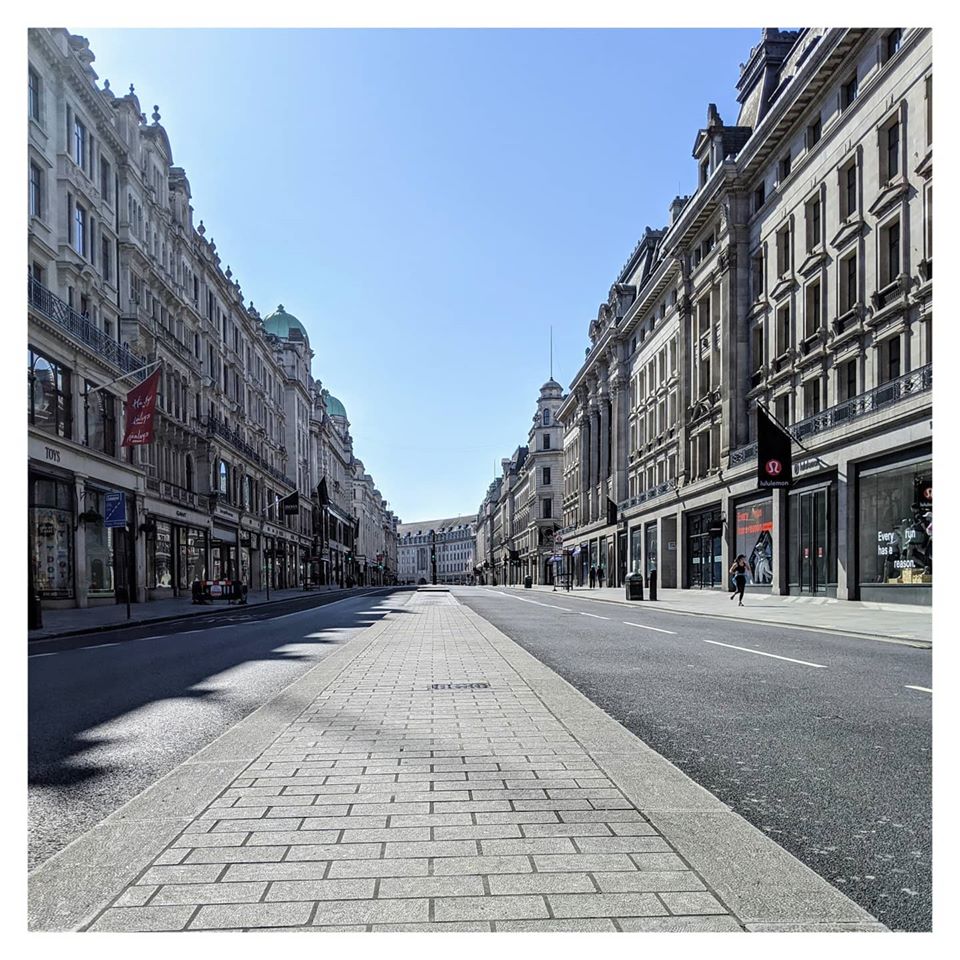Post
OPINION | Where’s our public space now?
19 Apr 2020
It is ironic that the Society's theme for its talks and events this year is "public", as each of us are forced into private spaces and our access to the capital's public space is limited to shopping, exercise and essential activities. We shall look at some of the aspects of this and what the future might hold in forthcoming blog posts, but here Josh Fenton goes searching for meaningful public space in this time of crisis.
“When you do have to leave your home, you should ensure, wherever possible, that you are two metres apart from anyone outside of your household”
Printed clearly on crisp white paper, in emboldened text, the Prime Minister’s strongly worded advisory most likely sent a chill (hopefully not a feverish one) down the spine of anyone reading those words.
Delivered to every household in the nation, these words were part of Boris Johnson’s Letter to the Nation On Coronavirus, issued in the heat of the global Covid-19 pandemic. If it were not already evident, it has become crystal clear in week four of the UK lockdown that we are collectively living through an historic moment.
Peculiarity hangs thick in the air, it’s sensed in the muted glances between joggers who daren’t offer greetings for fear of each other’s potentially toxic exhausts, in the urgency of dog-walkers, now hesitant to linger for a kerbside chat. The question is; can we find a new way to enjoy the feelings we associate with public space despite our physical separation and dislocation from ‘real-world’ public spaces?
In George Romero’s 1978 Dawn of the Dead, we see hordes of people milling through the Monroeville Mall, the type of palace of consumption familiar to any city dweller. David Emge’s character looks on, and suggests that their mindless drifting is derived from “some kind of instinct… memory… of what they used to do. [The mall] was an important place in their lives.” Though our shopping centres and high street parades are now largely shuttered behind flimsy, but impassable grilles, there is no denying that before we shut ourselves in, shopping, commerce and barter had become a vital part of public life.
Even if only as decorative wallpaper in moments of transition, London’s shops and outlets added texture to every step. In places they were unpolished, with fishmongers sidled up to the burger-van-man, hemmed in while he dispensed his hot, comforting foods. Especially in London, there was a sense that no one could be foreign or alien, rather, we were all part of an extended family.
Today, the people that we do see on the streets all clutch the rations they have been able to procure, exasperation already visible as they anticipate the return to domesticity; yet more fights over the remote control and the endless search for things to do.
In some senses, we are witnessing an impromptu revival of both London’s identity as a city of villages, and the local store. It is true that for the most part, these ‘locals’ are just mini versions of the nationally available ‘big four’, but in these times of restriction they have become a central point in the unique day-to-day experience of each community, offering chance meetings and idle interactions with those with whom we are only vaguely familiar. .
Each of us locked into confined radii around our homes, some of us will be seeing our neighbourhoods in a completely new light, finding routes through the backways and alleys for our newly found running habit or catching the sun in the pocket park that we formerly saw as a ‘shoddy bit of grass’.
Though, we don’t all share a predilection for sun, and not all of us have sporty inclinations, but, we all must eat! In the ritual of purchase and consumption, we are able to ground ourselves in some form of collective normality. We have frequented these corner shops and grocery stores for years, but perhaps, the neat two-metre spaced queue, sharpens our senses: was the air-conditioning always this fresh? Were the lights always so glaring? And... who knew the aisles were so narrow?
Clearly we have begun the slow and tentative process of adjusting to lockdown – trying to rekindle the feelings associated with public space: the perception of community, public togetherness and shared experience. In part we’ve found these feelings being ‘together’ with our neighbours, just chatting at safe distance, or rapturously applauding our ‘underpaid heroes’. Aside from these incidental moments however, a large part of our new public reality (for now at least) is in orderly queues, waiting our turn to hear the implacably delivered: “unexpected item in the bagging area!”
